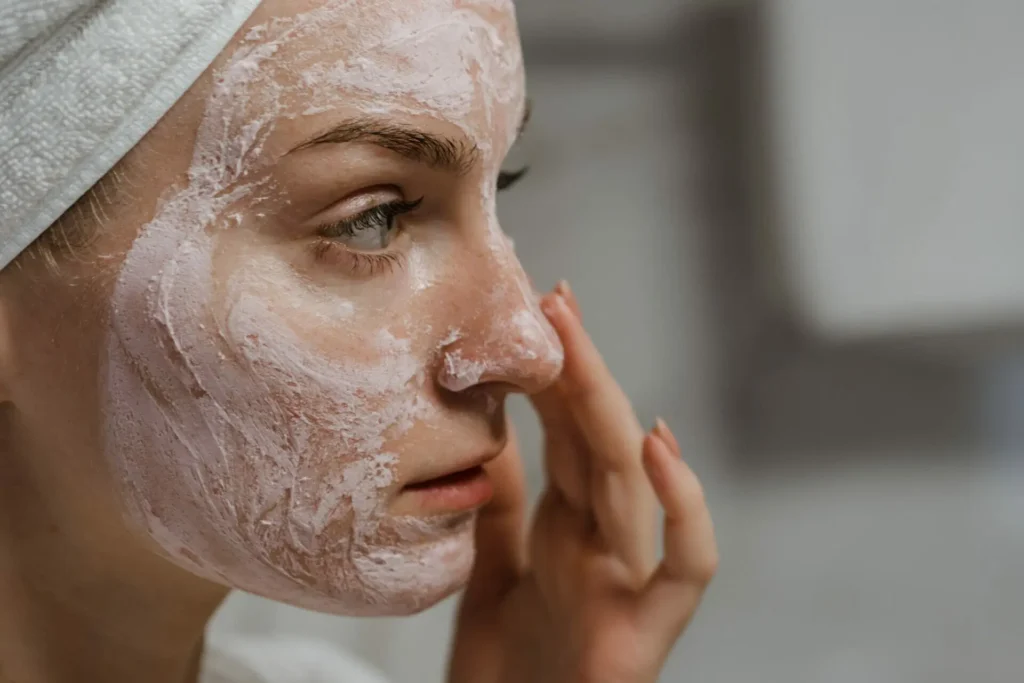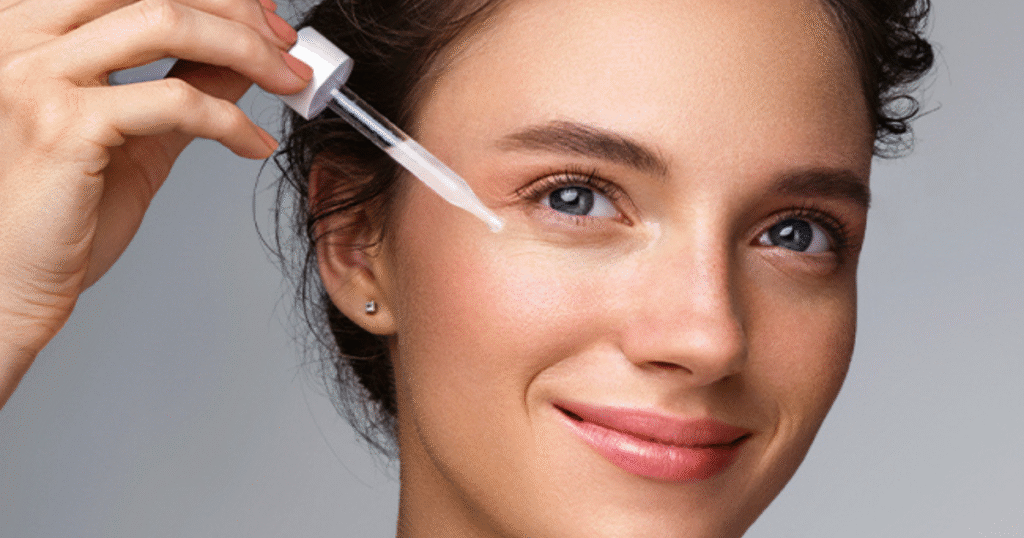Large pores are a common skin concern for many people, especially those with oily or combination skin types. While it’s impossible to eliminate pores entirely—they are a natural part of the skin’s structure—there are effective strategies to make them appear smaller and less noticeable. Understanding the causes of enlarged pores and taking consistent care of your skin can help improve its overall appearance and texture.
In this comprehensive guide, you’ll learn what pores are, why they become enlarged, and How To Reduce Pores practical ways to minimize their appearance using proven skincare techniques and lifestyle adjustments.
What Are Pores and Why Do They Enlarge?
Understanding Skin Pores
Pores are tiny openings on the skin’s surface that house hair follicles and sebaceous (oil) glands. They play a vital role in skin health by allowing the skin to breathe and release sebum, a natural oil that keeps the skin moisturized and protected.
Causes of Enlarged Pores
Several factors contribute to the enlargement of pores, including:
- Excess Sebum Production: Overactive oil glands can stretch out the pores.
- Genetics: If large pores run in your family, you may be more prone to them.
- Aging: Collagen and elastin loss with age reduces skin elasticity, making pores appear larger.
- Sun Damage: UV rays break down collagen and thicken the skin, enlarging pores.
- Improper Skincare Habits: Not cleansing properly or using pore-clogging products can worsen the issue.
- Acne and Blackheads: Buildup in the pores can stretch them over time.
Understanding the root cause is essential for choosing the right treatment approach.
Effective Ways to Reduce the Appearance of Pores
1. Keep Your Skin Clean
One of the simplest yet most effective ways to minimize pores is through consistent cleansing.
Benefits of Cleansing
- Removes dirt, oil, and impurities that clog pores
- Prevents acne and blackhead formation
- Refreshes the skin and supports natural turnover
Tip: Use a gentle cleanser suitable for your skin type, and wash your face twice daily—morning and night.
2. Exfoliate Regularly

Exfoliation helps remove dead skin cells that accumulate on the surface, which can clog pores and make them look larger.
Types of Exfoliation
- Physical Exfoliants: Scrubs that use small particles to remove dead skin manually.
- Chemical Exfoliants: Contain acids like salicylic acid (BHA) or glycolic acid (AHA) that dissolve dead skin at a deeper level.
Tip: Limit exfoliation to 2–3 times per week to avoid irritation.
3. Use Clay Masks
Clay masks are known for their oil-absorbing and deep-cleansing properties. They draw out impurities from the pores and help reduce their visibility.
Recommended Clays
- Kaolin Clay – Gentle and suitable for sensitive skin
- Bentonite Clay – Strong oil absorption, ideal for oily skin
Tip: Apply a clay mask once or twice a week as part of your regular skincare routine.
4. Apply a Retinoid Product
Retinoids are vitamin A derivatives that encourage cell turnover and unclog pores. They also stimulate collagen production, which tightens skin and makes pores look smaller over time.
Benefits of Retinoids
- Improves skin texture and tone
- Reduces oil production
- Prevents acne and blackheads
Tip: Start with a low-strength formula to build tolerance, and always use sunscreen, as retinoids increase sun sensitivity.
5. Incorporate Niacinamide (Vitamin B3)

Niacinamide is a powerful ingredient that can regulate oil production, reduce inflammation, and improve skin barrier function.
Benefits for Pores
- Minimizes pore appearance by reducing excess oil
- Improves skin elasticity and tone
- Strengthens the skin’s natural barrier
Tip: Use a serum or moisturizer containing niacinamide daily.
6. Protect Your Skin from the Sun
Sun damage contributes to the breakdown of collagen and elastin, making pores appear more prominent.
Best Practices for Sun Protection And How To Reduce Pores
- Apply broad-spectrum sunscreen with SPF 30 or higher daily
- Wear a hat and seek shade during peak hours
- Reapply sunscreen every 2 hours when outdoors
Tip: Opt for a non-comedogenic (won’t clog pores) sunscreen suitable for your skin type.
7. Stay Hydrated and Moisturized
Dehydrated skin can signal oil glands to produce more sebum, which can enlarge pores. Proper hydration helps maintain skin balance and texture.
Benefits of Moisturizing
- Plumps the skin, reducing pore visibility
- Maintains a healthy skin barrier
- Prevents overproduction of oil
Tip: Choose lightweight, non-comedogenic moisturizers, especially if you have oily or acne-prone skin.
8. Avoid Pore-Clogging Ingredients
Certain skincare and makeup products can clog pores and worsen their appearance.
Ingredients to Watch Out For
- Heavy oils like coconut oil or lanolin
- Alcohol-based products that dry out skin
- Silicone-heavy primers (in some cases)
Tip: Look for products labeled “non-comedogenic,” “oil-free,” or “won’t clog pores.”
9. Maintain a Healthy Diet

A poor diet can exacerbate skin issues, including enlarged pores.
Foods That May Help
- Fruits and vegetables rich in antioxidants
- Omega-3 fatty acids (found in fish, chia seeds, walnuts)
- Green tea for its anti-inflammatory properties
Foods to Limit
- Sugar and high-glycemic foods
- Processed and fried items
- Dairy products (for some individuals)
Tip: Stay consistent with a balanced diet and drink plenty of water.
10. Consider Professional Treatments
When home skincare isn’t enough, professional treatments can help refine the skin and reduce pore size.
Common Options
- Chemical Peels: Remove dead skin layers and promote regeneration
- Microdermabrasion: Gently resurfaces the skin for smoother texture
- Laser Therapy: Stimulates collagen production and tightens pores
- Microneedling: Enhances skin firmness and reduces pore visibility
Also Read : The Ultimate Guide To Choosing The Right Moisturizer For Your Skin Type
Conclusion
While it’s impossible to eliminate pores completely, you can significantly reduce their appearance through consistent skincare, healthy habits, and the right products. Key strategies include keeping your skin clean, using targeted ingredients like retinoids and niacinamide, protecting against sun damage, and maintaining a healthy lifestyle.
Understanding your skin type and being gentle with your routine are crucial. Enlarged pores don’t disappear overnight, but with patience and persistence, your skin can look clearer, smoother, and more refined.
FAQs
Q1: Can pores actually shrink?
No, pores don’t physically shrink or close, but their appearance can be minimized through proper skincare and treatments that unclog and tighten the surrounding skin.
Q2: Are large pores only a problem for oily skin?
Large pores are more common in oily skin types due to excess sebum production, but they can affect anyone depending on factors like genetics, age, and sun exposure.
Q3: Does cold water close pores?
Cold water can temporarily tighten the skin, making pores appear smaller, but it doesn’t actually close them. Pores don’t have muscles, so they can’t open or close.
Q4: Is makeup bad for large pores?
Makeup isn’t inherently bad, but using pore-clogging products or not removing makeup properly can worsen enlarged pores. Choose non-comedogenic makeup and always cleanse thoroughly.
Q5: How long does it take to see results from pore-minimizing skincare?
Results vary depending on the products and methods used. Some people may notice improvement in a few weeks, while others may take a few months of consistent care to see significant changes.





